2022 Allen Foundation, Inc. Grant Results
The Reaching Children’s Potential (RCP) Nutrition Education and Technology Project has helped improve the nutrition practices of 100 families living in poverty in the Ukwega ward, Tanzania. Over 860 families are currently enrolled in Global Volunteers’ RCP Program, which is a growing initiative that provides families with the necessary resources to improve their nutritional knowledge and food security. The project received a generous contribution from the Allen Foundation, Inc. and Global Volunteers provided matching funds to reach all grant objectives. We are proud to partner with the Allen Foundation to help families achieve their food and nutrition goals. Read on for details on this important project’s achievements.
The Allen Foundation and Global Volunteers
The Allen Foundation, Inc. was established in 1975 by William Webster Allen with the vision of reaching more people with better nutritional information and thereby helping to alleviate malnutrition. During Mr. Allen’s professional career, he worked for the United States Mission at the United Nations where he witnessed firsthand the problems of hunger and malnutrition around the world. It was during his time working at the United States Mission that Mr. Allen formed his belief that most of the leading causes of death were attributed to poor nutrition and lack of nutrition education and established the foundation.
The Allen Foundation emphasizes the strong connection between diet and health and believes they should remain a basic and priority for all humans.
The foundation gives funding priority to projects that benefit nutritional programs in the areas of education, training, and research.
- To support programs for the education and training of mothers during pregnancy and after the birth of their children, so that good nutritional habits can be formed at an early age.
- To assist in the training of persons to work as educators and demonstrators of good nutritional practices.
- To encourage the dissemination of information regarding healthful nutritional practices and habits.
- To conduct relevant nutritional research.
The foundation also requires that all funded projects have budgetary self-efficiency, which demonstrates that the program can continue after the grant period is over.
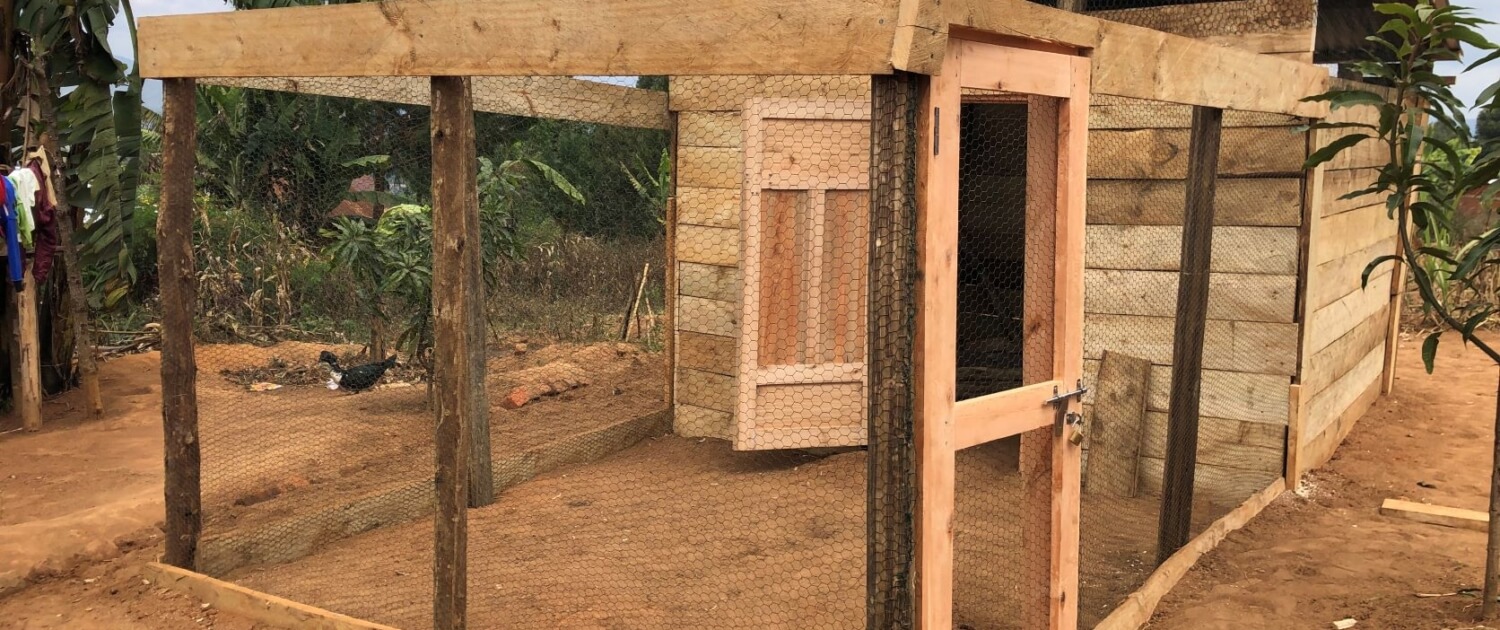
Global Volunteers’ goal is to create, nurture and sustain the well-being of the world’s children and their community, that they might realize the full promise of their human potential. RCP is a child-focused, parent-driven, family-centered, community-led, and volunteer-supported comprehensive program that invests in children’s and mother’s nutrition, health, and education beginning with pregnancy, continuing through the 18th birthday, and focusing on the first 1,000 days of life. All components are implemented and directed by local people with the catalytic support of local staff and external volunteers.
The Allen Foundation grant provided funding for 100 families in the Ukwega ward to receive five Earthboxes each to grow vegetables for micronutrients, a household chicken coop with ten chicks to produce eggs and chicken meat for protein, and a fuel-efficient vented stove to expel carcinogenic smoke out of indoor cooking areas and limit the use of biomass fuel. In addition, parents attended educational workshops on nutrition and how to use the various household technologies and benefited from weekly home visits conducted by RCP caregivers and volunteer professionals and access to a modern community health clinic. The household technology installation and distribution and educational workshops were overseen and managed by Global Volunteers Tanzania staff and volunteers under the direction of our Tanzania Country Director, Nayman Chavalla, and RCP Director and General Counsel, Andrew Philbrook.
All Grant Objectives Achieved
Seventeen Volunteer professionals, with the assistance of our Tanzania staff, conducted multiple in-person workshops and training for nutrition, food production, and meal preparation topics. During the project period (June 2021 through December 2022), every family who received EarthBoxes, chicken coops, and a fuel-efficient stove attended workshops on the care and maintenance of chickens, the nutritional importance of protein from eggs and chicken meat, and growing vegetables in EarthBoxes, how to use a fuel-efficient vented stove, and preparing nutritious meals. Likewise, all families participated in weekly home visits conducted by Global Volunteers RCP caregivers.
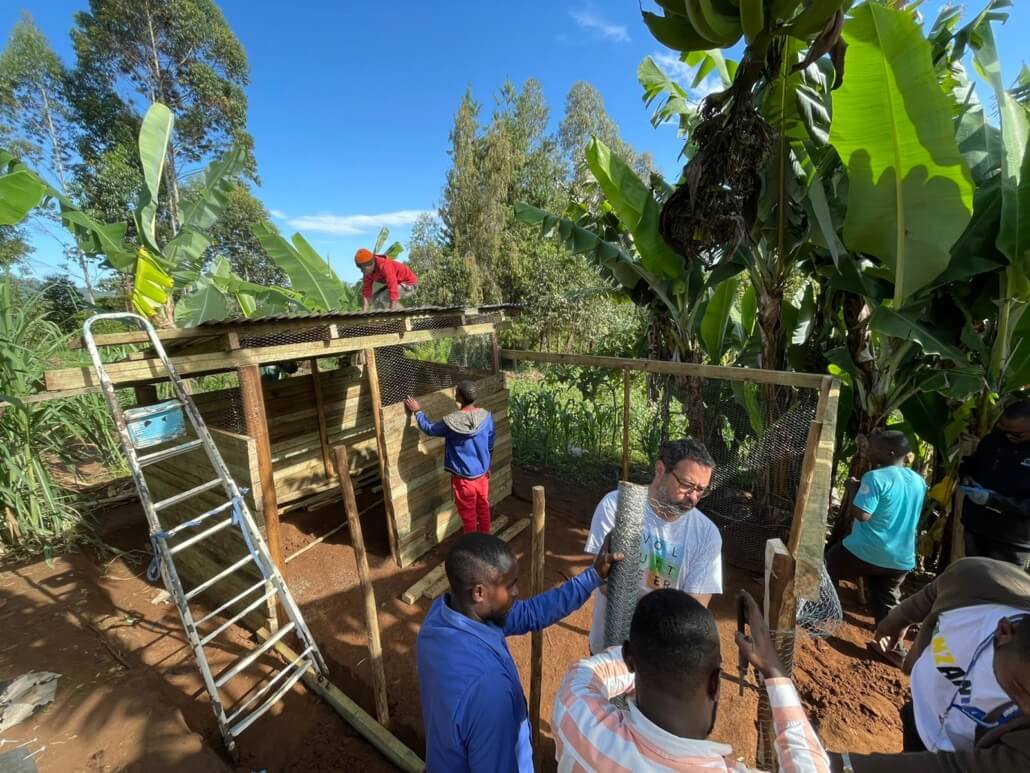
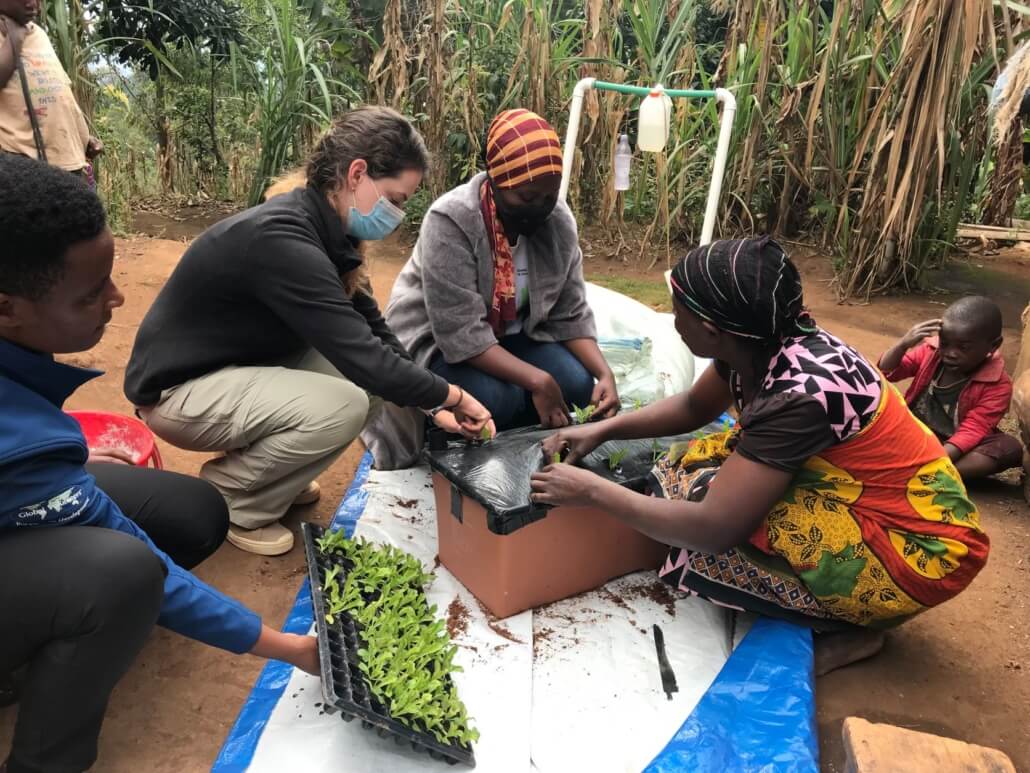
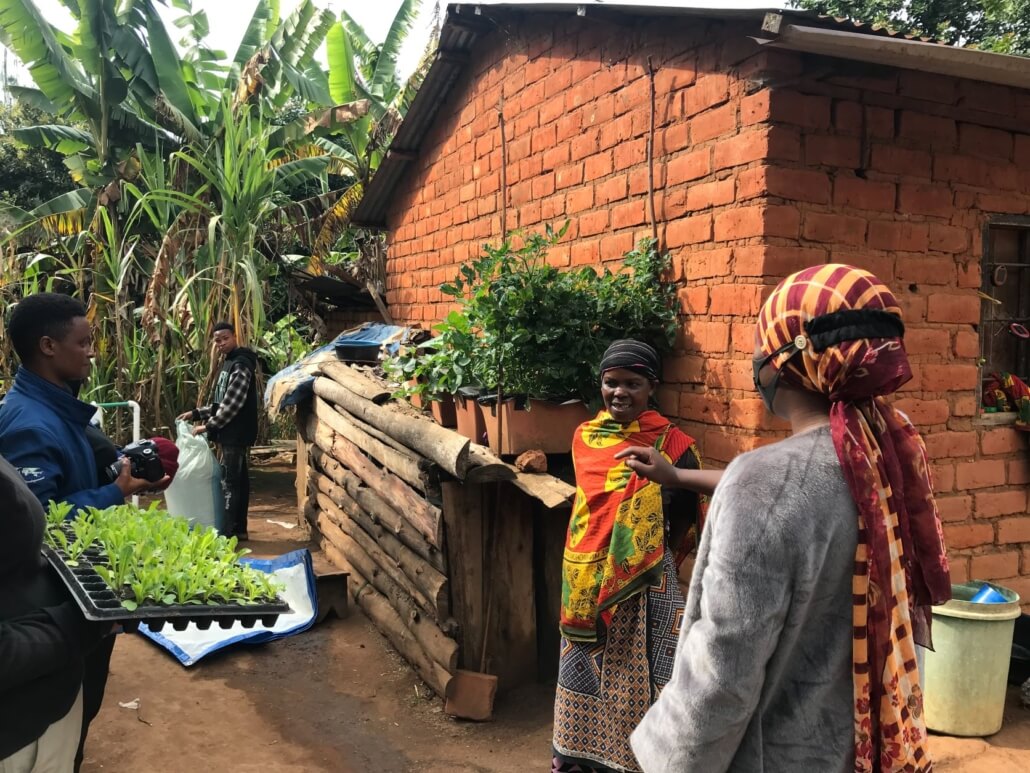
Between May and December 2022, Global Volunteers staff, family members, volunteers, and locally hired laborers constructed 100 household chicken coops. 1,000 one-month-old chicks were purchased from local poultry producer Silverlands and distributed to the families. We hired an exceptionally qualified professional to assist with chick care, protect the health of the chicks, and prevent losses. Poultry Specialist Mary Kashindye, who previously worked in the industrial poultry arena, directed the distribution of the month-old chicks and is providing ongoing guidance to the families on feeding, harvesting, and vaccination practices. Based on our prototype chicken coop, each family should harvest between seven and nine eggs per day, providing each family member with enhanced daily protein.
“I love the workshops because the things that they teach always touch our realities in our community. That is why I love attending the workshops so that I can learn more. I also love home visits because the caregiver helps me to remember a lot of things that I have already learned but also homes visits help me to create trust on the program because if the program could be established without any follow ups, I couldn’t be interested.”
Machelina Nyamoga, RCP mom in Ukwega village
In addition to enhanced protein, families, especially infants, require daily consumption of vegetables filled with essential micronutrients to reduce stunting prevalence and improve their overall health. To meet this need, families were provided EarthBoxes – household container gardens – which are convenient for growing vegetables and easily accessible to pregnant women and mothers. Earthboxes can produce three to four times more vegetables than a shovel-in-the-dirt garden in a similar amount of space. Moreover, they require less water, less labor, and less fertilizer than traditional gardens. In a climate like that in Ukwega ward, families can grow three to four cropping’s annually in their Earthboxes. This means that one Earthbox can produce enough micronutrients needed by a teen or an adult or two preteens for a year. And each Earthbox can be reused for decades. With an average family size of seven, five earth boxes can meet all the micronutrient requirements for every family member. Five hundred EarthBoxes were purchased, distributed, and planted. All families who received EarthBoxes attended a workshop training session on the use and maintenance of EarthBoxes.
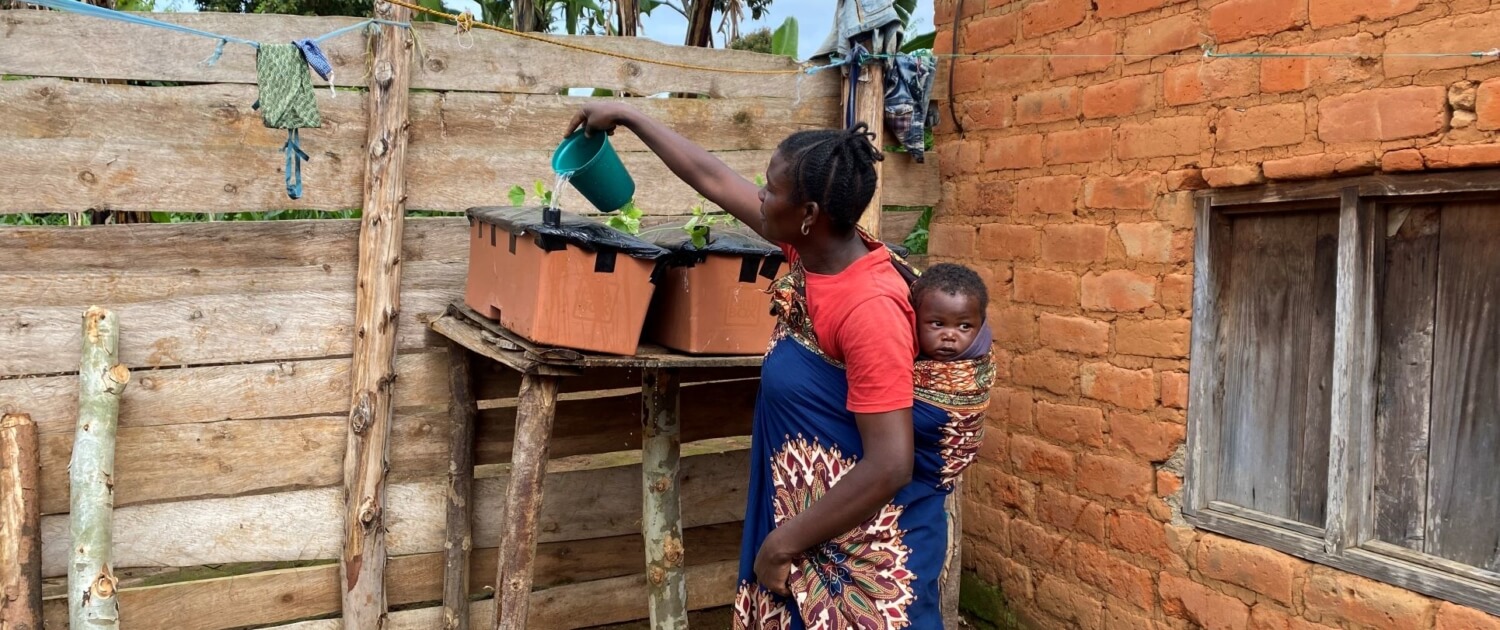
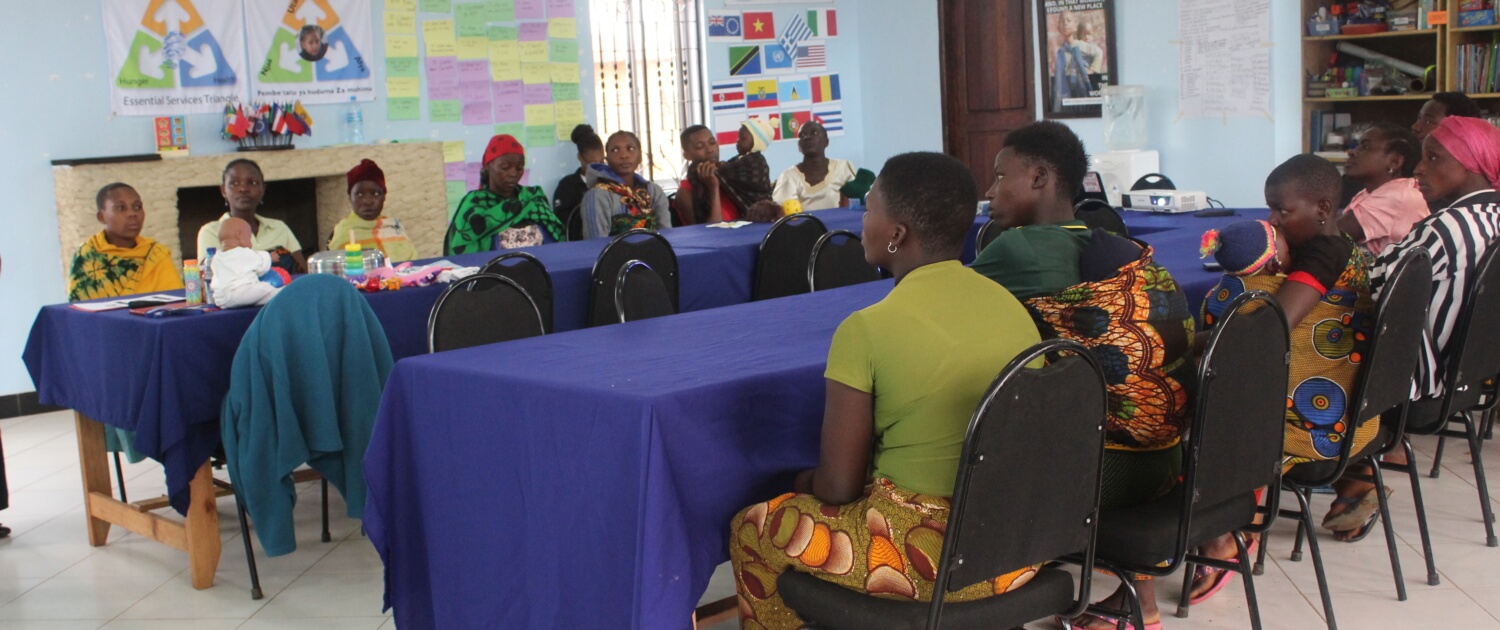
The standard practice for cooking in Ukwega ward is using an indoor, unvented wood fire. The harmful emissions associated with this custom can be mitigated by a fuel-efficient vented stove. Unfortunately, our initial stove design was less effective than originally desired due to the venting pipe being too small. This temporarily delayed construction. After several redesigns, Global Volunteers Tanzania staff constructed a stove model that successfully vents smoke out of the cooking area, uses less fuel, and provides sufficient heat to cook food. During the project period, we constructed 100 fuel-efficient vented stoves in 100 families’ homes. All families attended training workshops on using and maintaining their new fuel-efficient vented stoves.
“I have a garden box in which I have grown spinach. I have been harvesting vegetables and cook them for the family. The vegetables are very delicious, actually I am not a fan of this kind of vegetables, but the ones I have grown in the box taste delicious and I like them. Vegetables are very important because it helps our bodies to be stronger. I would like to have more boxes because they are very helpful, we do not have to walk far for vegetables.”
Nelly Kabogo, RCP mom in Lulindi village
The RCP Nutrition Education and Technology Project has helped make good nutrition practices a reality for 100 Tanzania village families in Ukwega ward. Household food production and preparation technologies like chicken coops, EarthBoxes, and fuel-efficient vented stoves are providing families with the resources to produce and consume nutritious food. Simultaneously, nutrition training has improved nutritional knowledge and begun the process of developing good behaviors and decision-making related to nutrition and improving families’ well-being for generations.
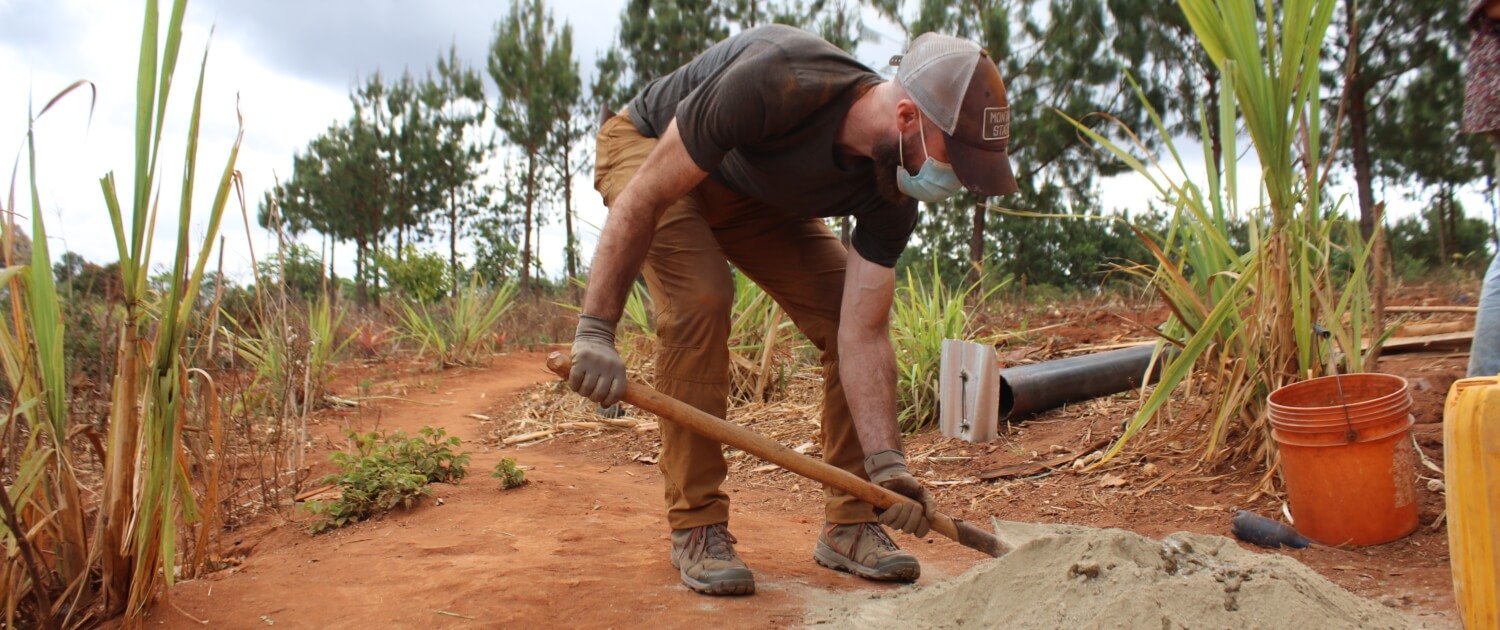
In 2023 and beyond, we anticipate that all 100 families who participated in the parent educational workshops and home visits will apply their increased knowledge of nutrition to improve their family’s overall health. Further, after the chickens begin producing eggs, we expect that all 100 families will have improved nutrition and protein intake, measured through increased egg and meat consumption. We anticipate all families who received stoves will have fewer instances of pulmonary disease and overall improved health outcomes measured during weekly visits with RCP caregivers and health evaluations at the Ipalamwa General Clinic.
With the heartwarming dedication of everyone involved in this project, 100 families and their children are experiencing better health and nutrition which will significantly improve their futures. Now we need to do the same for the other 760 families enrolled in the RCP program. We hope to continue working with the Allen Foundation to support food security for families in the rural villages of Tanzania.

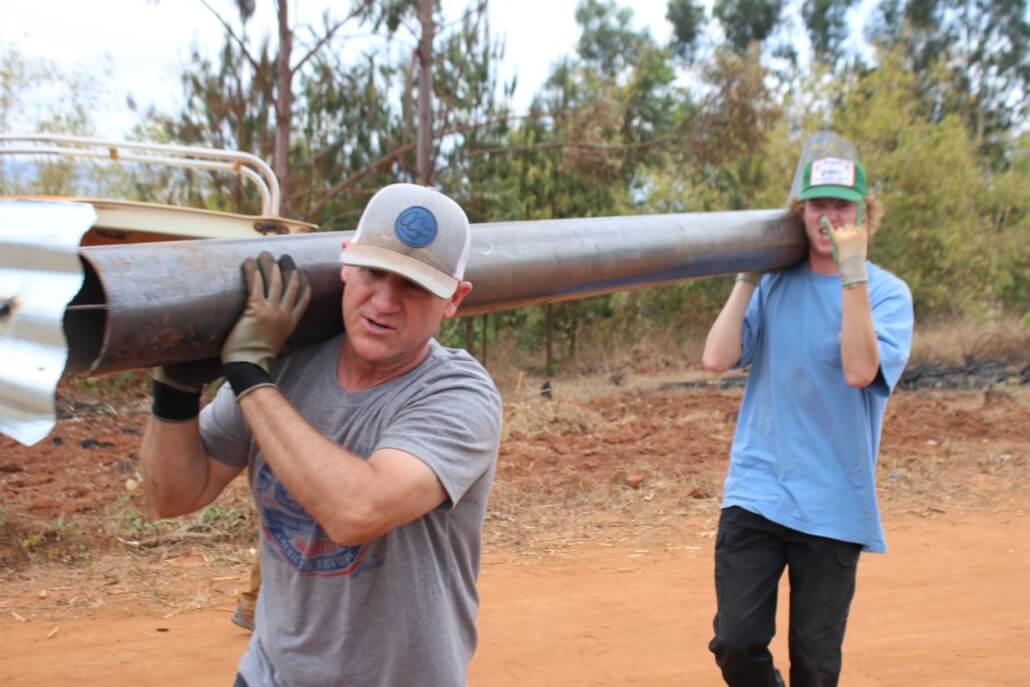
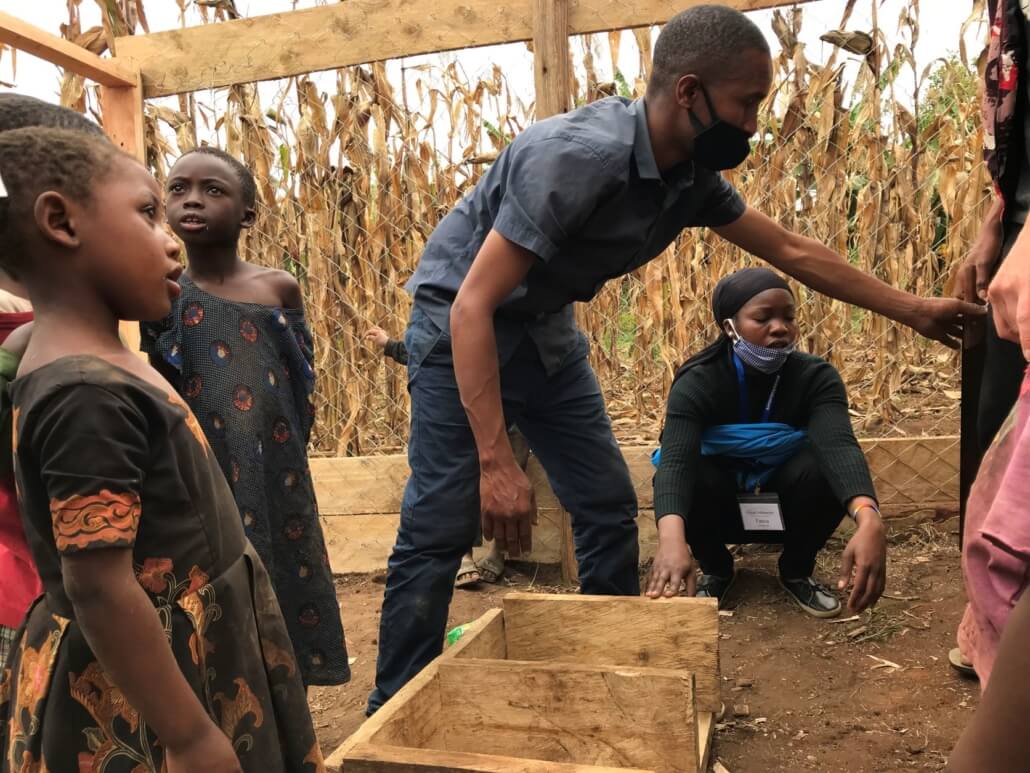
You may also like the following:
Expecting moms get the care they need and deserve in Tanzanian Village
Tanzania Volunteers Target Nutrition, Health, and Education on Demonstration Program
Learn how to volunteer in Tanzania or chat with a volunteer coordinator to register today!

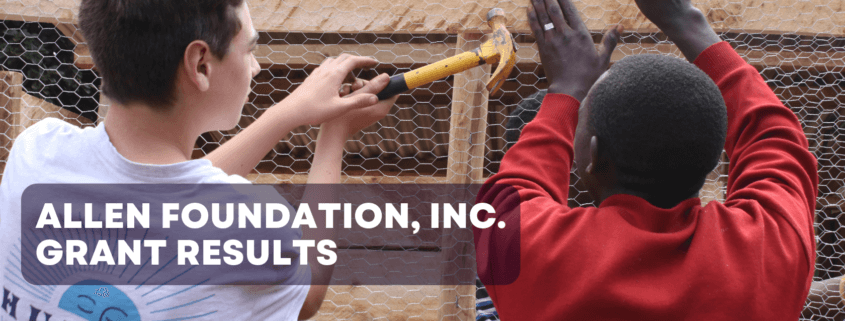


Leave a Reply
Want to join the discussion?Feel free to contribute!